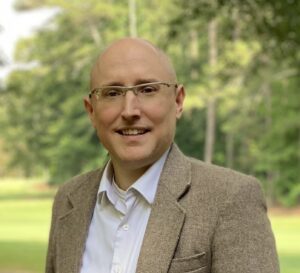“Free-thought is a philosophical viewpoint that holds that opinions should be formed on the basis of science, logic and reason and should not be influenced by authority, tradition or any other dogma”
Taken from the website of the Fayette Freethought Society, the quote above defines the basic principles which validate the existence and purpose of this organization and the worthiness of its members.
It does so in both an affirmative and negative sense. Opinions should be formed on the basis of science, logic and reason and should not be influenced by authority, tradition or any other dogma.
Thus science, logic, and reason validate the opinions formed by members while authority, tradition, and other dogma are rejected as the bases for personal opinions.
Implied in the statement is the truth claim that opinions formed by using science, logic, and reason are the only ones worthy of holding. Those formed by authority, tradition, and dogma have little or no standing whatsoever as truth claims.
Since freethinkers exalt the process of thinking freely about the weightier things of life, I will evaluate the statement by, well, thinking about it.
When I do so, I first notice that Free-thought is set down as a “philosophical viewpoint.” Philosophy, or the love of wisdom, is that discipline which pursues truth, with truth being defined as correspondence between one’s thoughts, writings, and speech and the way the real world actually is. With truth comes knowledge, and with the proper application of knowledge, comes wisdom.
As an act of human intellect, philosophy takes place in the minds of human beings. For most of the past two thousand years, human beings accepted with certainty that they possess a mind and that the mind was not the brain. Instead, the mind differed from the brain in that the substance of the former is non-material, while the latter consists of parts that are clearly material in their composition.
The second noteworthy item in the opening statement is its claim that forming “opinions” is the goal — opinions that are based, again, on science, logic, and reason.
Notice that the object of the freethinker’s worldview is not to determine true beliefs but to establish opinions. Absent any further clarification of the term, one wonders how freethinkers distinguish between contradictory opinions even when these are formed on the basis of science, logic, and reason.
Without such clarification, one concludes that opinions differ from truth as the object of freethinking and, further, that freethinkers accept the idea that opinions may be relative to the opinion giver with little concern that these opinions are true.
Thirdly, the grounds for forming the opinions of freethinkers are science, logic, and reason. One can infer from this limited list of sources that freethinkers thoughtfully considered what sources of knowledge are available to free-thinking human beings, evaluated each, and settled on these three as the exclusive basis for forming correct opinions.
Matters such as the nature of reality, its origin, ethics, morality, meaning, the nature of knowledge and how one comes to obtain true knowledge, the degree of certainty with which individuals hold their opinions or if there is any certainty at all, to say nothing about the nature of philosophical inquiry, science, logic or reason itself — ALL thinking is determined ONLY by science, logic, and reason.
Therefore, free thinkers reject all other contenders as authoritative sources of knowledge. Among these are the notions of cultural traditions and culture as such, authority (whatever that means), common sense, intuition, personal experience, fine art, philosophical reflection, history, natural theology, dogma (undefined as to type) and, yes, even Divine revelation.
Clearly, free thinkers have been busy as they considered all the contenders as sources of knowledge in order to determine absolutely that science, logic, and reason are the ONLY keys to the kingdom of knowledge.
Such echoes the voice of Dr. Carl Sagan, speaking as a scientist, claiming that, “the Cosmos is all that is or ever was or ever will be.” But, after thinking about freethinking, I wonder whether such an emphatic statement was intended not as one describing the way things really were, are, or will be, that is, a truth claim, but was merely his opinion.
Were he alive today, I would bet that he would be warmly welcomed into the Freethought Society. But, I digress.
Finally, the statement at issue is clearly pretentious, presumptuous, deceptive, and irrational. Before I explain why, I want to peel back the Free-thought onion a bit.
Under the section on the Fayetteville website labeled, “we’re about:” we find tags to the following links: Freedom From Religion, Separation of Church and State, Rational thought and Skeptical Thinking, Secular Humanism, Agnostic, Skeptics, Freethinker, Atheists, Brights, Secular Parenting, Secularism, Science, Neopagan, Recovering from Religion, and Pantheism.
So, at least the Fayetteville chapter of the Freethought Society focuses on these topics.
I followed the link, Secular Parenting, which took me to sub-links with the tags freethinking parents, Atheist Parents, Parenting Beyond Belief, Agnostic Parents, Las Vegas Freethinkers, radical unschooling, Freethinker, Freedom From Religion, and secular home school.
(Note that the word secular derives from the Latin term, saecularis, meaning worldly or temporal, and is defined in several senses which when combined means a division of reality into two parts: things religious and things not religious in nature).
It should be clear from these tags that the statement describing what Free-thought is omits what logically follows from it: atheism pure and simple. An atheist, then, rejects the existence of any form of supreme or supernatural being whose existence influences the physical universe.
It follows from this fundamental premise that atheists MUST hold to the following opinions or beliefs: (1) that anyone who believes in the existence of such a being is wrong to do so, (2) that such persons are deluded, ignorant, stupid, and dangerous, and (3) that the opinions of such persons should be barred from public discourse, especially when their opinions are given to influence political outcomes.
Whether admitted or not, atheists cannot tolerate the opinions, beliefs, or truth claims of those who believe in God.
These claims also define a second relevant term, secularism, the more pernicious etymological cousin of the word secular.
Secularism entails the separation between government institutions and the persons mandated to represent the state from religious institutions.
It asserts the right to be free from religious rule and teachings, and the right to freedom from governmental imposition of religion upon the people within a state that is neutral on matters of belief.
In another sense, it asserts that human activities and decisions, especially political ones, should be unbiased by religious influence.
But, here is where the problems begin for atheism and atheists, problems that make irrefutable my claim that to hold such opinions is pretentious, presumptuous, deceptive, and irrational.
For atheism MUST presuppose that nature is all there is, that any form of being is composed only of material or matter, and that any and all such beings exist without design, purpose, or meaning.
Conversely, atheism presupposes that every form of being exists by virtue of random, natural events which themselves are determined by mindless, natural, and unguided causal chains that preceded their existence and over which they had absolutely no control.
Determined only by the foregoing, all beings, including atheists themselves, are simply mindless, purposeless, and meaningless random molecules in motion.
Readers must understand that by subscribing to naturalism, or materialism, or scientific naturalism, an atheist, must reject the thinking mind since the mind, as understood for the past two thousand years, is itself non-material.
Since materialists’ orthodoxy holds that a material universe is all that exists, they must, by their own logic, reject any non-material construct such as mind. They must also reject any abstract thoughts that derive from a mind such as ideas, notions, or beliefs; and yes, even opinions themselves.
Moreover, based on their own claims, atheists cannot use logic, science, and philosophical reflection to form opinions or rational arguments.
Again, based on their own claims, atheists cannot make objective moral judgments (ideas like right/wrong, should/should not, ought/ought not) independently of their biological makeup.
Logically, and following their own claims, atheists can neither claim that their acts of love, compassion, or mercy are virtuous nor that they possess the free will to make judgments on the basis of logic.
Any claims otherwise are pretentious, presumptuous, deceptive, and irrational.
In conclusion, atheists, including those who call themselves freethinkers and are members of The Freethought Society, are anything but free.
Rather, if Dr. Sagan were correct in claiming that the Cosmos is all there is, or ever was, or ever will be, then atheists are inescapably enslaved by their own biology and, sadly, are destined to extinction along with the universe in which they exist.
This, then, is what the Freethought Society and freethinkers offer humanity — a universe in ruins whereby the entire enterprise of humanity and human history, as we know it, will be found to have been without purpose, without reason, and without any meaning whatsoever.
God help us all.
Please, THINK about it.
Randy Hough
Peachtree City, Ga.











Leave a Comment
You must be logged in to post a comment.